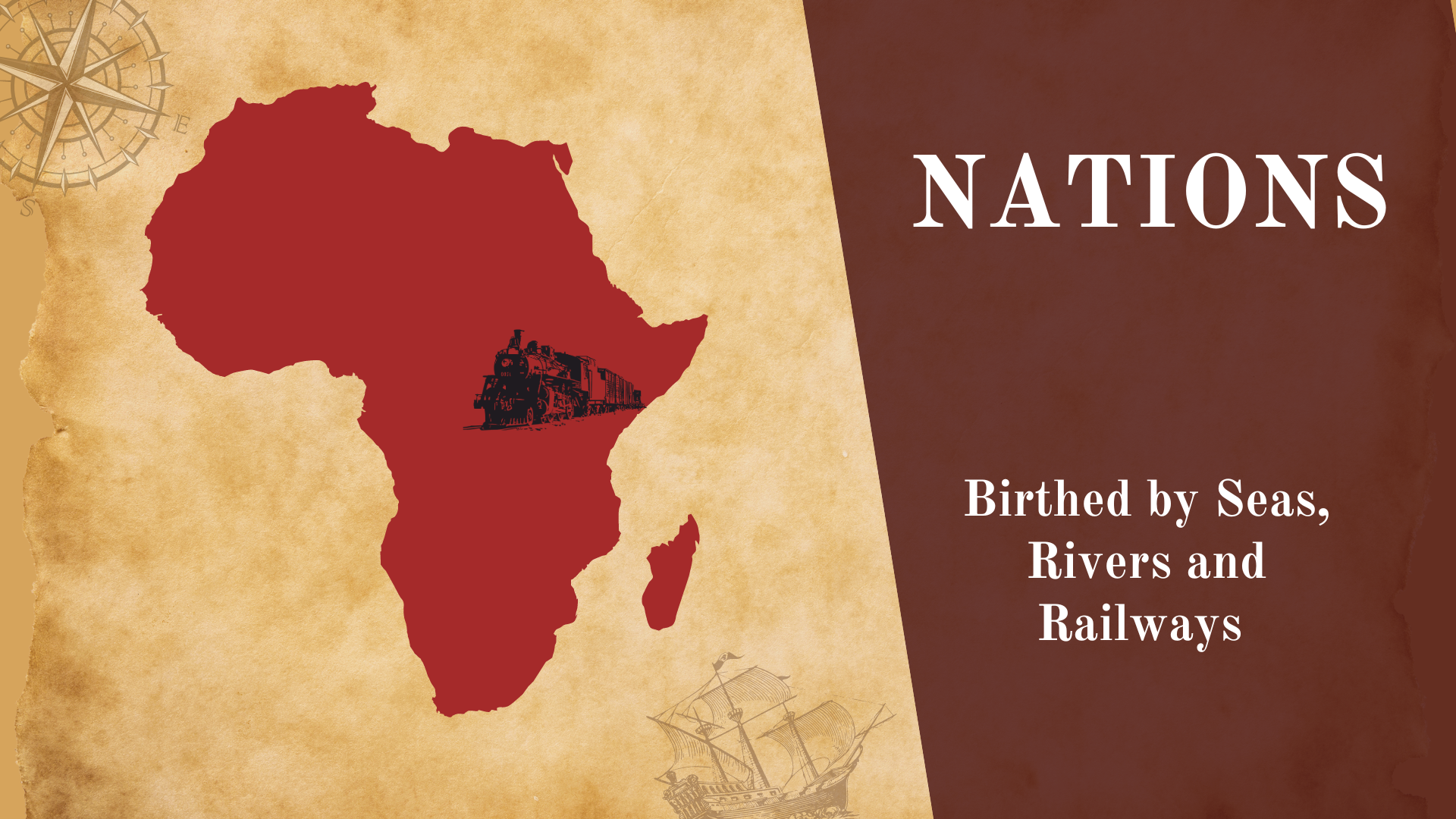
Uncover the stories behind borders drawn with colonial ink and the birth of nations forged from unlikely origins including:
- A country that grew out of a railway.
- Someone poked a stick into Senegal to create a river that grew into a country
- A country not listed in the FIFA Ranking where one president reigns supreme.
Part 1: Kenya
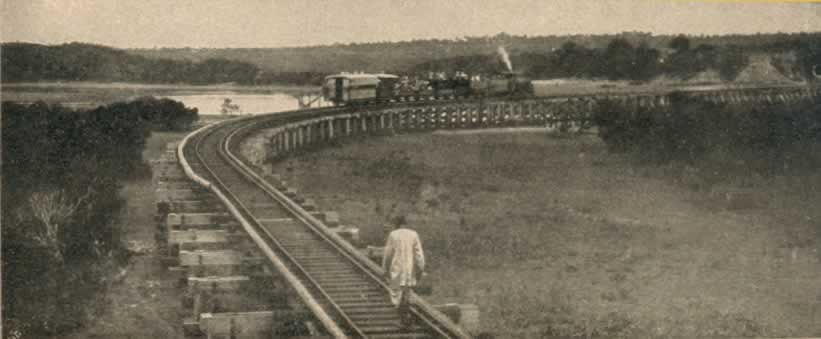
In the 1800s, the British desperately wanted to control the sea route to India. To do so, they had to control the Suez Canal. To do so, they had to control the land around it (Egypt). To do so, they had to control the River Nile. To do so, they had to control the source of the River Nile (Lake Victoria). To do so, they had to control the land around it (Uganda). And that’s how they ended up scrambling for the whole North-Eastern part of Africa.
When that part of the land was accorded to them in the Berlin Conference, they quickly sought out to embark on their plan. To get to the Buganda hinterland, they decided to build a railway from the Coast of Mombasa, on the eastern side.
Known as the Ugandan Railway, construction started in the year 1895. Government surveyors were brought in from Britain, while hundreds of coolies and thousands of donkeys and camels were brought in from the Indian colony.
After the construction began, it wasn't long before the British government realized how much the railway was draining its coffers. Some members of the British Parliament and the British Press even went further to refer to it as the 'Lunatic Express', because it was said that only a lunatic would spend so much on a railway to the middle of nowhere, and also, only a lunatic would continue building a railway line despite all the man-eating lions, malarial swamps and hostile tribesmen accosted along the way.
After much deliberation, the British government became convinced that they could only recoup the losses by developing the land alongside the railway line. The Protectorate's new commissioner, Sir Charles Elliot, wrote a letter to Britain, saying,
“The railway is the backbone of the East Africa Protectorate, but a backbone is as useless without a body as a body is without a backbone. Until a greater effort is made to develop our East African territories, I do not see how we can hope that the Uganda line will repay the cost of its construction. We have, in East Africa, the rare experience of dealing with a tabula rasa, an almost untouched and sparsely inhabited country, where we can do as we will.”
His solution, therefore, was to ship in settlers from the overcrowded Europe to start life afresh here. In 1903, there had only been at most 100 settlers. By the late 1940s, the number had risen to 29,000. In the 1950s, the number peaked at 80,000, with a huge portion of them being demobilized WWII soldiers.
These settlers brought development with them, and just that way, the country that came to be known as Kenya was created. It is fascinating to note that the greatest country in East Africa was just a geographical access route to somewhere at the time considered far more important. That access route ended up being more important than the place being accessed. And on that note, Sir Charles Elliot quipped a very nice quote, when he said,
“It is not uncommon for a country to create a railway, but it is uncommon for a railway to create a country.”
Kenya had just been born accidentally out of a railway.
Language Learning 🗣

New Resources:
📌 Must Know Akan Love Words, Phrases and their meanings
Would you like to contribute to a resource of common phrases in your language? If so, please respond to this email.
Language Tip:
Mastering a language starts with mastering its most common words. Flashcards paired with online dictionaries are your dynamic duo for language learning: use flashcards to drill those essential words into memory, and lean on the Lughayangu dictionaries for instant clarification and expansion of your vocabulary.
Language of the Week:
Sango: Sango is an official language in the Central African Republic with around 5.1 million native speakers.
Part 2: Gambia
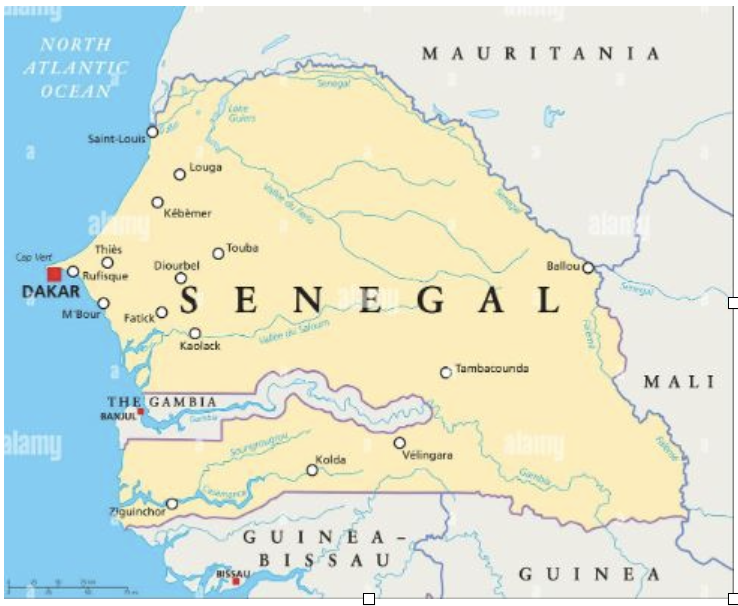
Figure 1: Look at the shape of Senegal and Gambia
If you've ever looked at the map of West Africa, you might've noticed that The Gambia is almost linearly shaped, while Senegal is all around it, almost like a Pac-man.
From the 1700s, at the peak of the Trans-Atlantic trade, both the British and France had vested interests in the entire territorial region that is SeneGambia (both Senegal and Gambia). And so, they were constantly at war over it, with each side alternating ownership over the land.
All this came to an end when, in 1899, the two countries finally decided to settle their differences and bury the hatchet. In the Anglo-French Convention of August 10th 1899, it was agreed that the British would only be allocated land that is 10 km north and 10km south of the Gambia River, as well as 10km east of Yarbutenda town. And that’s how the country ended up following the shape of the river. Simply because the whole country is simply the banks of River Gambia.
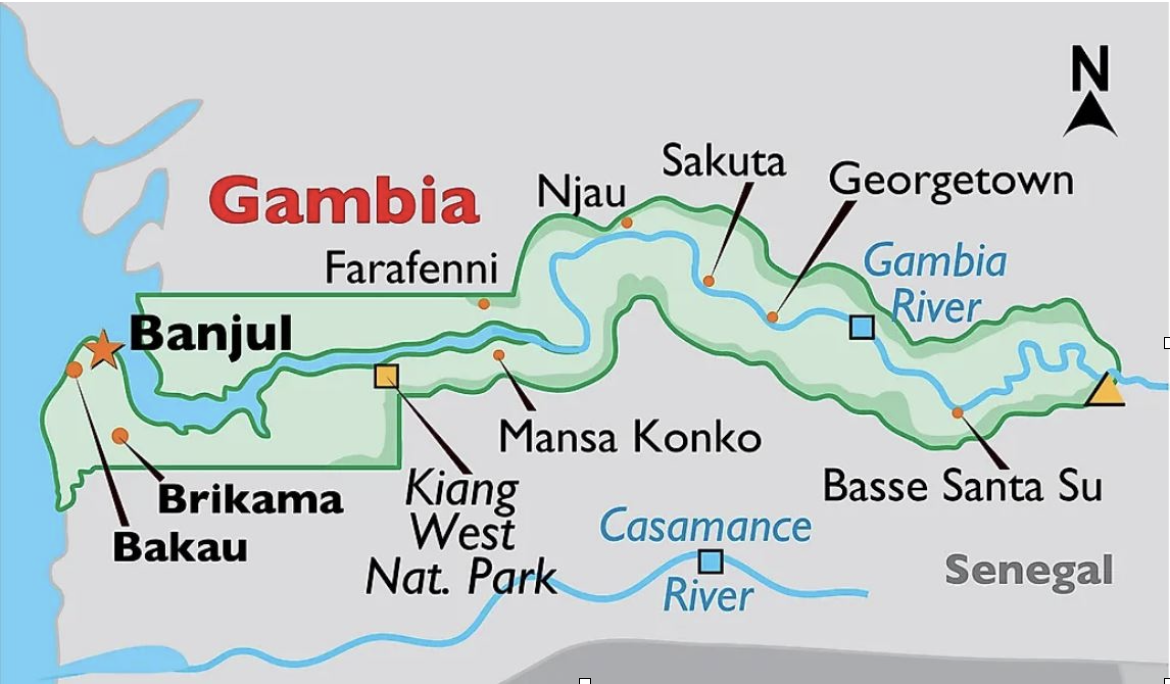
Figure 2: Map of Gambia, with a focus on the river
Another story goes that, after this treaty was signed, a British ship was sent to the Gambia River and decided to fire canon balls on either side and claim all the land within range. Wherever the canon balls fell became the boundary itself. Well, whether or not that is true, is subject to your level of imagination.
But the truth is, the Gambia River eventually became The Gambia country.
PS: The Gambia is also, the only country in Africa with a definitive article 'the' before its name, and only one of two countries, besides the Bahamas, that uses the article 'the', and not because its name is in plural (like the Philippines and the Netherlands) or because its name is descriptive (like the United Kingdom).
So, next time, when talking about The Gambia, ensure you put the article 'the' before it, and don't forget to tell the person you're talking with, that this was a river that grew into a country.
Riddle Time
Part 3: Eritrea
In October 2015, Botswana granted asylum to 10 members of the Eritrean men's national football team who went missing after playing the 2018 World Cup Qualifier in the country.
Similarly, during the CECAFA regional championship in Uganda, seven players from the national squad went missing. Eritrea reached the final in this tournament for the first time. These players later reappeared at the UNHCR offices in Kampala seeking asylum.
To understand why these players were willing to take such risks, one needs to go back in time and understand how the country bordering the Red Sea was formed.
For centuries, the African Red Sea coasts had been a subject of contention for many powers due to their strategic and commercial importance, and Eritrea was no exception.
The region now known as Eritrea had been ruled by various empires and dynasties over the centuries, ranging from the Aksum Empire to the Zagwe and Solomid dynasties to the Lords of Tigray.
In the 19th century, we witnessed the entrance of new players, the European countries and the USA, who were searching for the fastest route to India. This rivalry would peak after the Suez Canal's opening in 1869.
From 1869, the Italians bought parts of Eritrea from the Afar people, who lived in the region. Later, they invaded and occupied most of Eritrea, and even attempted to launch several attacks into Ethiopia, but were decisively defeated in the Battle Of Adawa.
Soon after, they signed the Treaty of Addis Ababa, which recognized Ethiopia's sovereignty and, in exchange, Ethiopia recognized Italian rule over Eritrea.
The Rule of the Italian overlords came to an end in 1941 during World War II when the British evicted them from the Horn of Africa.
The landlocked Ethiopia sensing an opportunity to access the seaport, launched a campaign claiming Eritrea had been part of Ethiopia all along.
On the other hand, Eritreans wanted nothing to do with Ethiopia. One of the major reasons was that Eritrean Muslims feared discrimination from mostly Christian Ethiopia.
These tussles and bustles resulted in Ethiopia and Eritrea forming a federation in 1952. However, the federation was short-lived as problems began to arise almost immediately after it was established, mainly because the government in Addis was unwilling to abide by the agreement.
Ethiopia opposed making Arabic the official language of Eritrea, Muslims were removed from public positions, and those supporting Eritrea's independence faced constant harassment, leading many to flee into exile.
The federation died officially in 1962 and Eritrea became a province of the Ethiopian empire.
In the mid-1960s, Eritrean leaders formed an independent movement that eventually became a guerrilla force, beginning a thirty-year fight for independence.
On April 25th, 1993, Eritrea gained independence with Isaias Afwerki becoming its first and only president to date.
You would think it gets better from here. Eritreans have at last gotten the independence they have been seeking for decades and they can start from a relatively clean slate.
Wrong! It only gets worse!
The new president wasted no time in showing his true nature and intentions, as he immediately initiated conflicts with neighbouring countries. Since then, Eritrea had been involved in disputes or wars with Sudan, Yemen, Djibouti, Somalia, and Ethiopia.
On top of all that, Eritrea has essentially become a one-party dictatorial state, with personal rights and freedoms routinely violated.
The mandatory national service which can be indefinite at times has motivated a large number of Eritreans to undertake dangerous journeys to escape the oppressive regime. One of the ways being going missing during international sports events in foreign countries.
The government of Afwerki has been accused of serious human rights violations by the UN Human Rights Council, including enslavement, rape, torture, and murder.
Imagine how tough life must be for someone who strives to become the best footballer in the country, only to get the chance to leave the country when they participate in foreign matches or tournaments.
In the News 📰
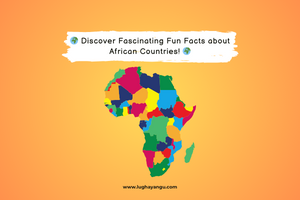
🏅Level 3 Ebook and Level 5 Rewards have now been added. Your level increases, the more contributions you make on the Lughayangu platform.
🌍 Fipa and Samia language dictionaries leading in the number of contributions this fortnight.
🌍 Dagaare just got its first definition.
✅ Don't be left behind. Help build your language dictionary.
Special Mentions:
📌 The 4 Most Peculiar Borders in Africa
📌 The forgotten legacy of the Goan community in Kenya By John Kamau
📌 Today in History -The Price of Passion: The Accra Stadium Tragedy
Proverb of the Week
Dangme Proverb: Kâ odonti yâ odunaa lâ ohuruuu otâkeee la -
Translation: If cotton wool is in your anus, you do not jump over fire.
Teaching: The proverb teaches that life is full of dangers, and it's crucial to be cautious, wise, and avoid being too trusting to stay out of trouble and make the most of life.
Special thanks to Keith Angana for contributing to the newsletter. Many thanks also to Gift Lamech and Shantel for their valuable language resources.
Join the Lughayangu Community!


